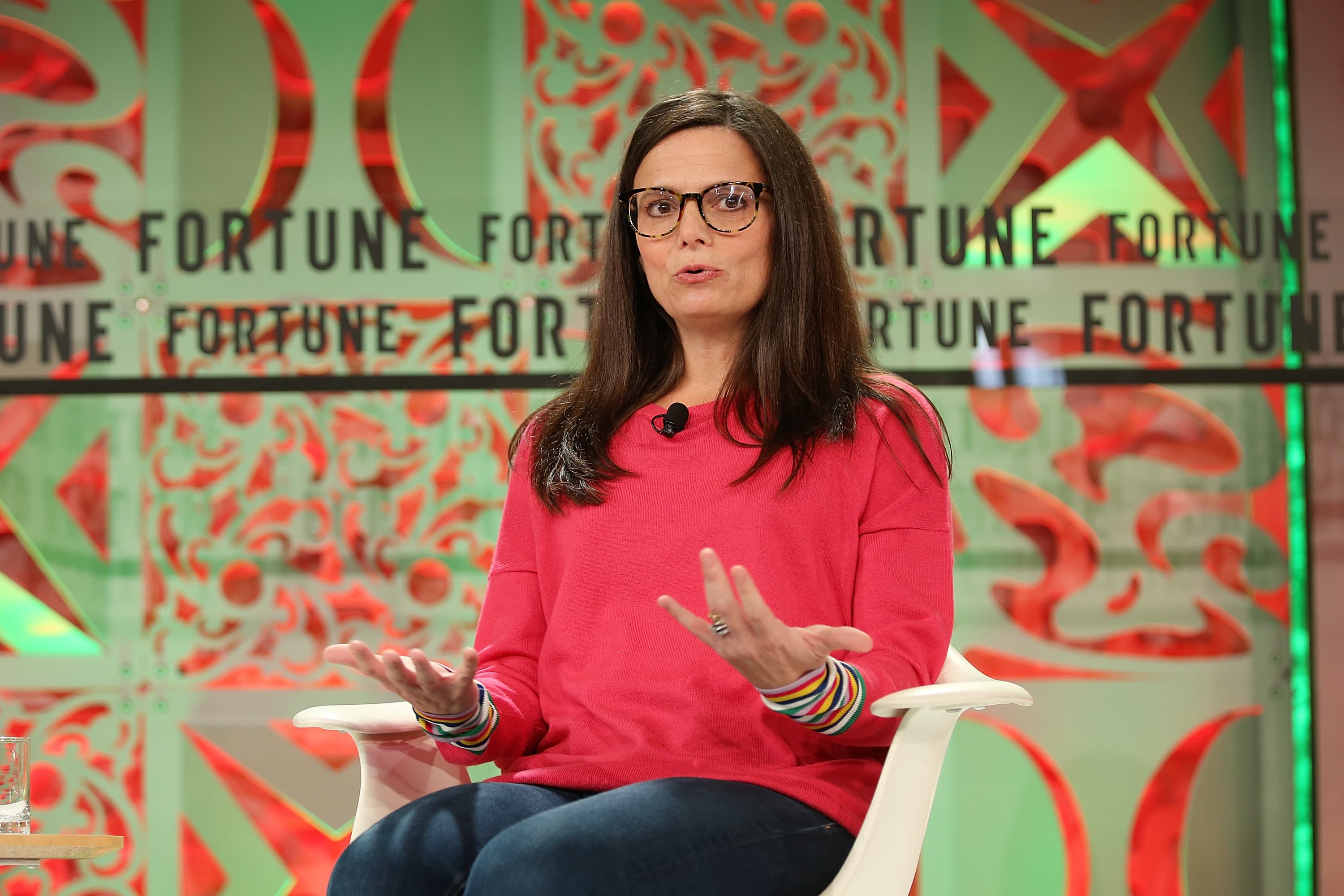
Amy Hood, chief financial officerof Microsoft, speaks at the Fortune Most Powerful Women Summit in Laguna Niguel, California, on October 2, 2018.
Phillip Faraone | Getty Images
Microsoft’s finance chief, Amy Hood, said Tuesday that she should have been talking more about the software company’s Windows operating system, whose revenue growth has accelerated through the Covid pandemic.
Personal computers don’t attract as much attention as newer technologies, such as cryptocurrencies or augmented reality. But Windows, which dates to 1985, still brings Microsoft tens of billions per year in highly profitable revenue, with over 1.4 billion devices running Windows 10 from 2015 or last year’s Windows 11. Windows held almost 80% share of the market in 2021, compared to about 11% for Google-backed Chrome OS and 8% for Apple’s MacOS, according to data from technology industry researcher IDC.
After Satya Nadella replaced Steve Ballmer as Microsoft’s CEO in 2014, the company changed the company from its historic focus on Windows first, opting to talk more about cross-platform services and cloud infrastructure. After the pandemic took hold, though, things seemed to change. In 2020 Microsoft said people were spending much more time on Windows 10, and the gains have persisted into 2022. In the fourth quarter Windows revenue grew nearly 20%.
Hood always talks about Windows on Microsoft’s earnings calls, and during the last two she has touted faster-than-expected growth rates for Windows sales to device makers, thanks to a strong PC market, especially for commercial devices that bring more revenue per license.
On Tuesday, Morgan Stanley analyst Keith Weiss at the firm’s Technology, Media & Telecom Conference asked Hood about her suddenly “more positive tone” about PCs on recent earnings calls.
“I should have been talking about Windows,” Hood in response.
“The utility of that device and my inability to accurately explain it may in fact be the issue, people are just now realizing, ‘Wow, she just figured it out, Windows matters.’ No,” she said. “I just figured out how to talk about it. And so the reality is, a large screen device over the past couple of years, we’ve all been reminded of the role it plays. There are more PCs per households and more time being spent on PCs. We’re continuing to see that even with hybrid. And so there are jobs to be done. And it plays a great role in many jobs to be done.”
The growth of Windows has been benefiting other parts of Microsoft’s business. Hood specifically mentioned consumer subscriptions to Office 365, search advertising, internet browser market share and gaming.
“This is one where whatever review form I got this year should say, ‘she forgot about to talk about Windows for a long time.’ And now, we’re going to remedy that because you’re seeing it in users, you’re seeing it in usage, you’re seeing it in the market,” Hood said.
Supply shortages have impacted sales of Windows, as well as Surface PCs and Xbox consoles, for several months, and on Tuesday she said that while constraints are still present, device makers are stepping up.
“I am optimistic,” she said. I’m more optimistic about what Windows can mean to a user. Now we can continue to make it better, more integrated, make it easier to do the things you like to do. For me, that’s Excel. For others, maybe something else is fun.”




